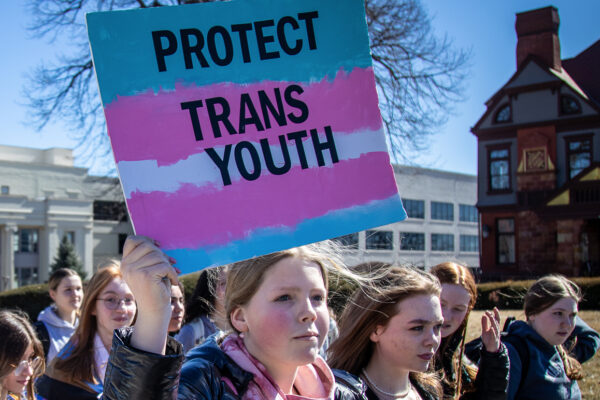Students in several Nebraska high schools are planning walkouts in protest of anti-trans bills in the Nebraska Legislature. Similar walkouts have happened and will happen in states across the nation this spring — a national show of solidarity in response to the record amount of state legislation impacting trans youth.
Ahead of the walkouts, we sent letters to Nebraska school district leaders. We are publishing that information here so that it is accessible to anyone who needs it. The bottom line is this: we encourage all school officials to support their students in exercising their right to civically engage.
March 30, 2023Re: Open Letter to Nebraska School Leaders on Student Walkouts
Dear Superintendents and Principals,
Our schools are often the first place where Nebraska youth learn how to civically engage, express their own ideas, and develop their social and political values. This week, in an expression of those values and civic engagement, students across Nebraska may leave their classrooms in support of transgender Nebraskans.
Last week, the Nebraska Legislature voted to advance LB 574, which would take away the freedom of families of transgender youth to seek critical health care. This bill is an attack on trans youth and directly affects life-saving health care for students in your schools. The ongoing debate in the Nebraska Legislature has engaged many young people who seek to use their voice and exercise their right to civically engage.
On behalf of the ACLU of Nebraska, we urge you to support your students in the exercise of that right. Demonstration and protest have long been a means of political expression and for participants to find coalition and support. We understand that this may distract from regular classroom activity, but as a reminder, students cannot be disciplined more harshly for politically motivated conduct than for similar non-political behavior. Further, students cannot be considered disruptive for wearing t-shirts, armbands, or other clothes or accessories that bear viewpoints — or face discipline as a result — just because someone may disagree with that view.
We also urge you to exercise discretion if a student misses a day or class period for a peaceful demonstration. Nebraska state law encourages alternatives to suspension or expulsion whenever possible for a student who is truant, tardy or absent. Policies regarding absenteeism should not be used to punish students who are engaged in democratic participation, especially when the issues at stake directly affect their health and safety.
For many of our young people who cannot yet vote, peaceful demonstration is one of the most powerful means to show their civic engagement. As a school leader, we urge you to share in that value. Thank you for your leadership and the ACLU is happy to serve as a resource to you, your students, parents, and teachers to ensure a safe learning experience for all.
Jane Seu
Legal & Policy Counsel
ACLU of Nebraska


